Previous we touched on decision fatigue and how it plays a role in slowing down your daily output. We’ve learned you have to declutter your mind of these types of unneeded mental stimulus, but what about the physical clutter, like a cluttered workspace? Does that play a role?
Apparently, it plays a big role. And there are more versions of mental clutter that affect us than previously mentioned.
Statistics of Clutter
Did you know:
- Twenty-three percent of adults admit to paying bills late (and, as a result, incurring late fees) because they lost the bill?*
- The average American is thought to spend a year of their life looking for lost items?*
- In a 2008 NAPO survey of 400 consumers nationwide, 27 percent said they feel disorganized at work, and of those, 91 percent said they would be more effective and efficient if their workspace was better organized. 28 percent said they would save over an hour per day and 27 percent said they would save 31 to 60 minutes each day.*
- Stephanie Winston, author of The Organized Executive, estimates a manager loses 1 hour/day to disorder, costing the business up to $4,000/yr if earning $35,000/yr – or $8,125/yr at $65,000).*
*Statistics of Clutter courtesy of BecomingMinimalist.com
Yikes. Can your business afford to miss bill payments? To pay people while they look for documents necessary to fulfill their responsibilities? Do you think it’s okay for your disorganized employees to be less efficient and less effective. And the big question: do you want disorganization or a cluttered workspace to ultimately cost you cold hard cash?
I doubt it. Let’s find out why clutter costs your business so much in the long run.
The Neuroscience of Clutter
It’s not good, y’all. A team of UCLA researchers observed 32 middle-class Los Angeles families and found that all of the mother’s stress hormones spiked during the time they spent dealing with their belongings.
That’s not the only scientific conclusion about clutter’s affect on our minds.
Do Think you Work Better with a Messy Desk?
Well I hate to break it to you, but you’re wrong. Many people claim that they work better in a messy environment. But, neuroscientists at Princeton University will beg to differ. In fact, they did a study on whether or not excess things in your surroundings can have an effect on your ability to focus and process information.
What they found in their study, titled Interactions of top-down and bottom-up mechanisms in human visual cortex, was that when there was too much stuff in sight, people had a significantly and measurably more difficult time being productive.
Then why’d you think that before I set you straight?
Think of it this way: excess items are draining your productivity because of the amount of novel things that catch your attention. People who believe that they work better in a mess are just accustomed to the same mess that they’ve acquired over the weeks, months or years. When their desk is clean, the amount of space they have is something novel to look at. Thus, it’s distracting at first.
But just because they cleaned their cluttered workspace once doesn’t mean they’ve improved their upkeep habits. They’ll be a little distracted by the open space on their desk but then slowly but surely accumulate the same amount of clutter. The new clutter is their old normal, and they decide that they work better and less distracted this way anyhow.
If you’re like this, don’t worry. You’re not alone.
Why do we surround ourselves with so many items?
When you introduce a new item into your life, you automatically assign more value to that item. It’s no longer a white coffee mug, after all. It’s your white coffee mug. This makes it more difficult for you to let go of it in the future. When you consider getting rid of clutter, it’s very difficult because of the psychological connection that you have to the item.
As you’re deciding what to toss and what not to, you may look at your mug and see it outside of what is in front of you. Instead of seeing a chipped handle, you see that cold Christmas Eve you spent drinking hot cocoa in front of the fire with your mother, laughing about the way your grandmother used to shake her whole body whenever she mixed pancakes.
You can’t have that moment again. But you can have the mug, a memento from that moment.
There’s more than that, though. It’s not just that you’ll feel a little pain in your heart to let something go. You also feel it in your brain. And it hurts.
The Neuroscience behind Decluttering
Wait, it hurts to rid ourselves of unnecessary physical objects? Yep, you read that correctly.
Researchers at the Yale School of Medicine conducted a study on hoarders and non-hoarders that required the participants to sort through items like junk mail and old newspapers. Items belonged to both the experimenter ant the participant, and the participant had to decide which of the items to toss and which to keep. During the experiment, researchers tracked their brain activity.
What they found was pretty astonishing.
There are two areas of your brain that are associated with pain, the anterior cingulate cortex and insula (see above diagram), that are activated in the time of declutter decision making. Whenever the participant felt like it “wasn’t right,” this combination of areas in the brain lit up more.
It may explain why hoarding is self-sustaining. If the hoarder is feeling a sense of pain when given the option to throw something out, they’re likely feeling a flood of relief when deciding to keep that item. Their accumulated items comfort them like a warm blanket.
Digital and Mental Clutter
Debilitating clutter doesn’t stop at what surrounds your computer. It’s also the digital files within it. Files without naming conventions taking up your processor, with no way to find them. It’s the countless bookmarks in your “read later” folder on your internet browser. Heck, you can even have a hoarded Pinterest account, with 20,000 pins and no way to find “that one thing.”
Regardless, it takes up space.
And so does that never-ending to-do list that you have running through your brain. Those “ought to’s”– the things you feel obligated to do but haven’t yet committed yourself to doing. It also includes the overload of information your brain experiences after reading every news article you happen to come across on a given day.
It adds up, and it’s taxing.
By now, you may be convinced. Too much clutter, too much choice and too much stuff don’t seem to be doing you any good. So what are the benefits of decluttering your work life?
Benefits of Owning Less
Easier to Clean
The less you have, the less you have to clean! No further explanation needed, am I right?
Good for the Environment
This works two-fold. It’s good for the natural environment and the future of our planet to consume less. So “the environment” as a whole in the traditional way of looking at it is indeed better off. But there are also sub-environments within that.
There’s your work environment, your home environment, the environment of your finances…some people believe that there are nine environments that make up one’s life. As UCLA saw with matriarch’s negative neurological reaction to dealing with their belongings, a decluttered environment can have the opposite effect on your psyche.
Be more Productive
Possessions take up time. You’re cleaning them, organizing them, buying them, getting rid of them, or looking through them to find another. All the while, you’re using up the most valuable of all human resources: time.
We’ve told you in many ways before. Time management is important! Decide on your values and stick to a less-consumption-based productivity routine if you want a more efficient work environment and a better work-life balance.
To be in the Present Moment
When you hang on to old items that you don’t currently use, you’re likely doing so for one of two reasons. Either you’re tied to the memories associated with the item or you’re convinced that “someday” will come when you’ll need it. When you decide to rid yourself of these constraining ways of looking at physical items, you’re no longer tied to the future or the past. You’re in the present moment.
Less Stress
Less stuff boils down to less to worry about. You’re not worrying about all the extra stuff you have to clean. You’re not stressed in your environment. Productivity is up. You’re present. What is there to be stressed about again?
How to Declutter your Workspace
1. Rid yourself of Excess.
We’ve already talked about how difficult this can be for many people. So I can understand why you may be reluctant to give it a go. Don’t forget all the benefits outlined! It’ll be hard work moving through all the stuff you’ve acquired over the years but it will be worth it.
If you’re having a hard time deciding on an item, ask yourself this:
Does it spark joy?
This is a question that has gained a lot of popularity over the recent years, since Marie Kondo published the International bestseller, The Life-Changing Magic of Tidying Up along with her subsequent book, Spark Joy. In her books, she speaks of how clutter robs us of joy in our lives and over-complicates the process of keeping things clean. You know how I mentioned the memories associated with physical items? There are also many items we keep despite negative memories that come up for them. She advises her readers to pay attention to whether or not an item strikes joy in you immediately when you hold it. If it doesn’t, and it doesn’t serve an immediate purpose that nothing else you have can fulfill, out it goes!
2. Shop Less.
It’s exhausting, and not just on your feet when your favorite store is across the mall from your second favorite. Why? Too many choices!
The Paradox of Choice
Another thing that clutters the mind of the average person in Western society is too many choices. Too many choices causes paralysis rather than liberation. When you’re given too many options, you focus so much on the opportunities that you would have had if you made a different choice. This cuts out of the satisfaction you take away from what you ultimately decided on.
Barry Shwartz wrote a book on this conundrum, The Paradox of Choice. For the too long, didn’t read version, watch his TED talk below.
3. Set limits.
What is it that you seem to collect? For me, it’s books. Eventually I’ll read them all, but I’ve learned to not peruse the book store until I’ve finished my most recent purchase. Sometimes when my latest read just hasn’t been doing it for me, I’ll supplement with some books from my local library. This can be applied to anything, though. Sweater collector? Decide that you’ll only have so much, then practice the one in, one out policy. Limit the amount of apps you have on your phone, people you follow on Instagram, and the amount of articles you read a day. This will help with mental and physical clutter.
4. Conduct a monthly review on your closet.
Unless you’re a fashion blogger, you likely wear a few of the same outfits over and over again for the entirety of a season. Pay attention to what you’re not wearing and give it to a charity that’ll allow it to be sold to someone who will wear it more frequently.
5. Keep a Critical Eye
Stuff accumulates quickly when you’re not paying attention. Pay attention! Are you spending too much time going through paintbrushes to find one you like? Does your child have enough Legos to build themselves a house in the backyard? Pay attention to what is or isn’t bringing you joy, and give someone else the opportunity to have a little more.
Apply this to your small business…
As you can see, too much clutter in your life has an affect on your work habits as well. A cluttered workspace drains you of many resources, especially. time.
Now, try this…
Use the above steps to rid yourself of that cluttered workspace for good. If you need more tips how to minimize clutter, theminimalists.com is a great resource.

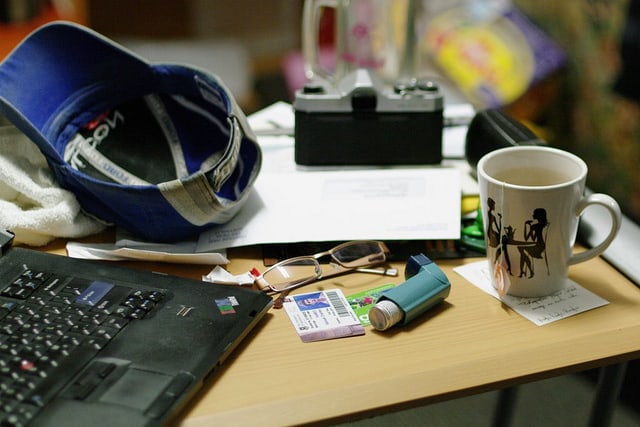

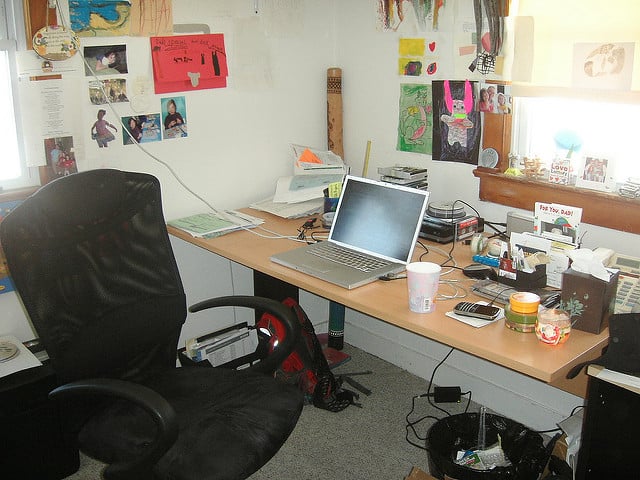
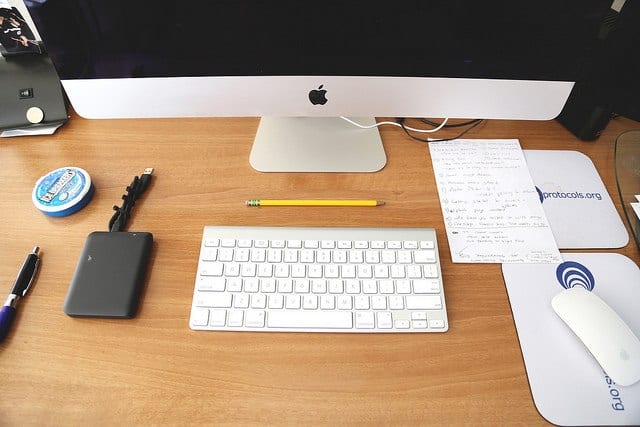
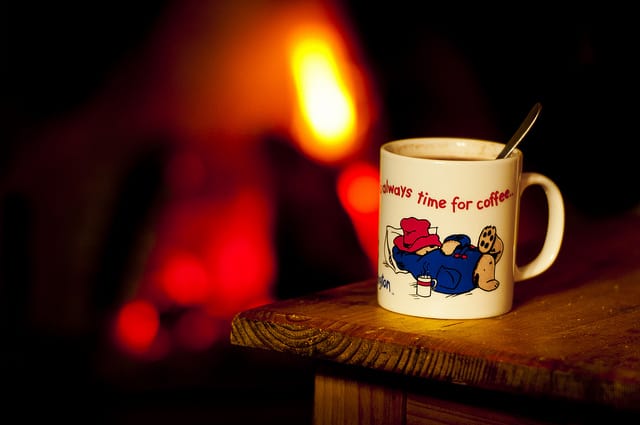
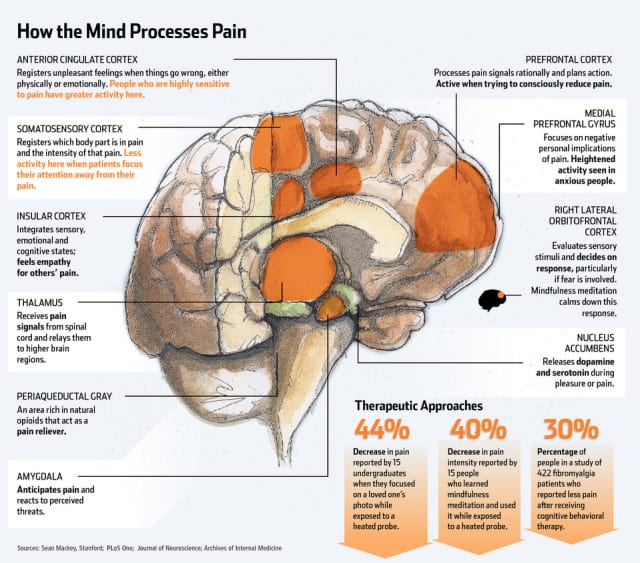
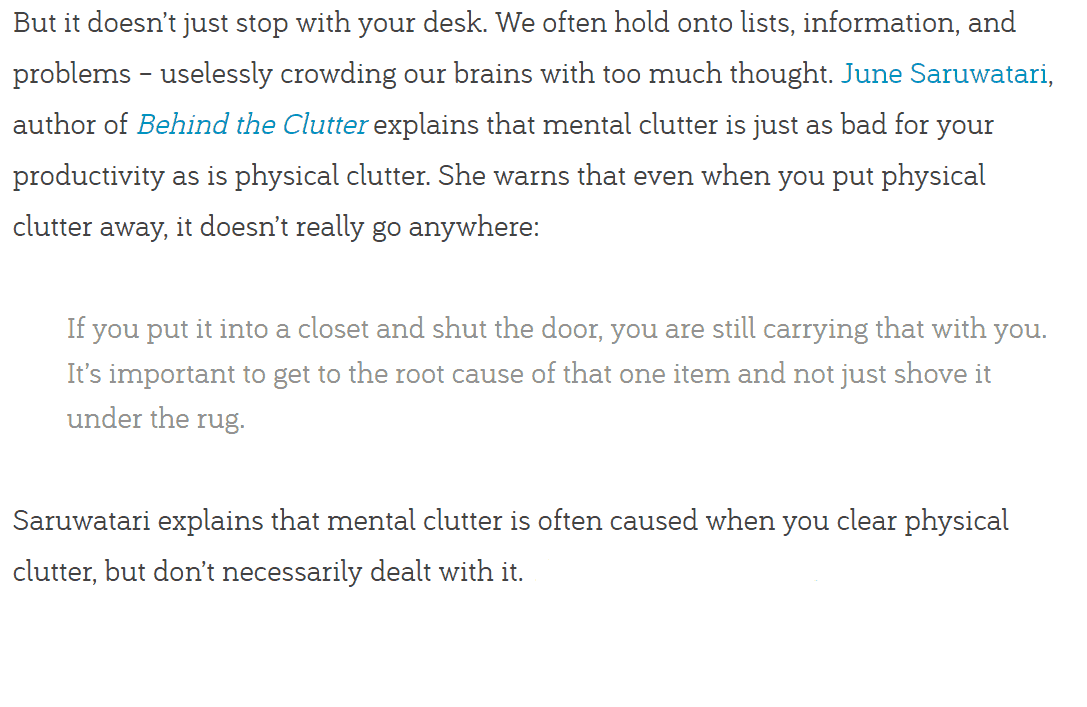
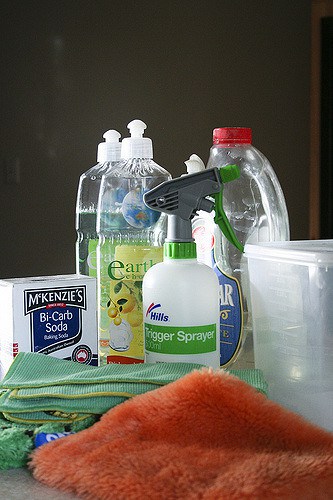
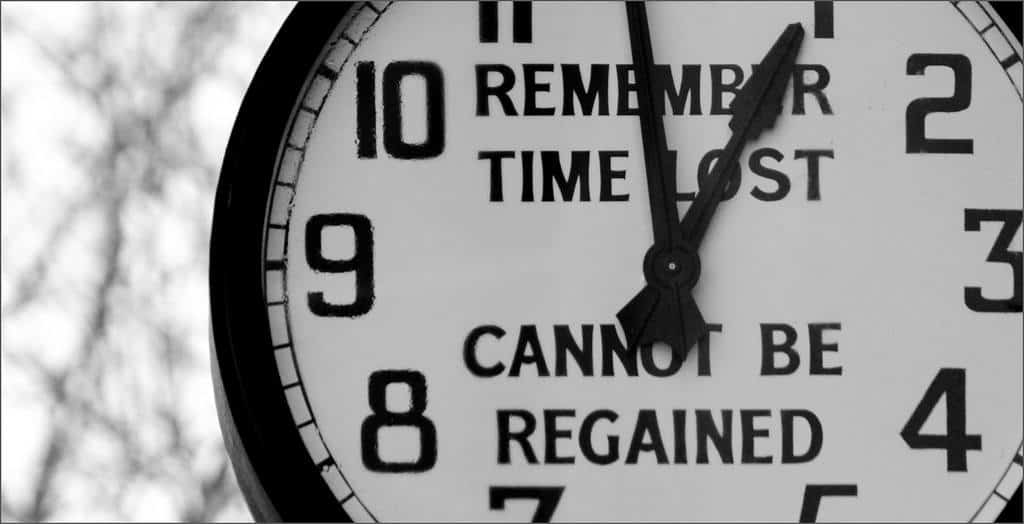

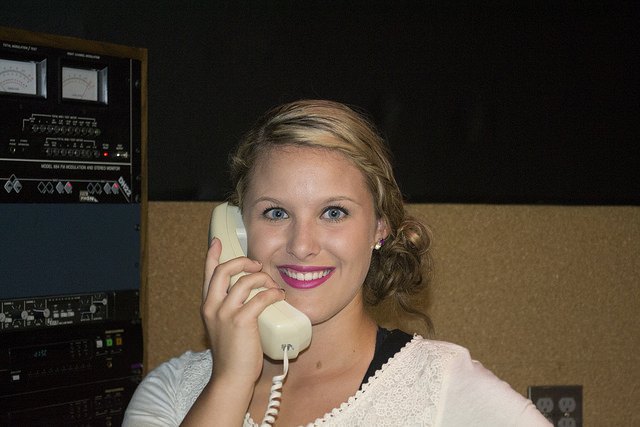
[…] National Association of Professional Organizers (NAPO) states that the number one challenge in being organised is paper clutter. Some studies reveal the average […]